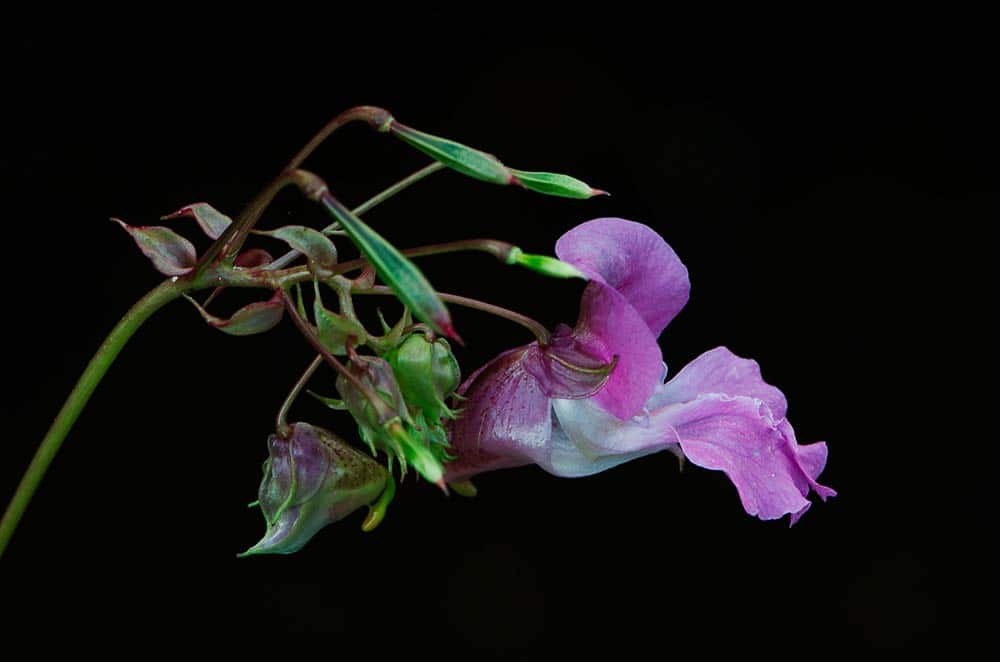Emma Knowles & Claire Stewart, GiGL

Himalayan balsam. Photo by Magnus Hagdorn. License: CC BY-SA 2.0 ©
Because GiGL is a not-for-profit community interest company, we often make information available for students without charging for our time. GiGL can provide relevant data that would otherwise be inaccessible or that would take longer to collect than is feasible for student projects. With over 12,000 open space and 4 million species records, as well as information on trees, habitats and protected sites, the data GiGL manage represents a unique resource for student researchers. They can be put to a variety of uses, producing metrics for analysis such as the location of parks for studies on open space provision; or giving a starting point to guide students’ own data collection such as identifying suitable locations for species surveys.
Not all data requests are for scientific purposes. GiGL data has also been used in arts projects, for journalism and for educational activities. We have had requests from a journalism student on changes to London’s green spaces; for a list of species in a school’s local area to develop a lesson plan; as well as for information on open space to inform hypothetical development in an urban planning project.
As well as providing data, GiGL offers advice and guidance on how those data could be used. Often, the first challenge faced by a researcher is deciding what information they need and discovering what information is already available. We have in-depth knowledge of our datasets, their advantages, limitations, history and distribution; so can help students to identify what data are relevant to their projects. In an age when data can be overwhelmingly abundant, we’ve found this can be reassuring. Because we work with our datasets on a daily basis and have answered a variety of queries in the past, we can also suggest suitable methods for processing the data and point students to other sources of data where relevant.
Last financial year, GiGL provided data for 25 student projects; provided summary information or statistics for four; answered interview questions for two; provided detailed advice or information to an additional three students, and answered queries from at least 10 more.
Projects last year covered a wide range of topics, including management of invasive species; how people value their parks; creating a cycle route planner; and use of GIS.
So far this financial year, we have answered 14 student data requests. These include: an architecture student focused on improving access in areas currently deficient in access to public open space within the Upper Lee Valley Area; an environmental science student investigating the effect of invasive Himalayan balsam on biodiversity along the River Wandle; and a Kings College student interested in the relationship between urbanisation and different bat species in London. Other recent student projects have focused on the topical issue of how green infrastructure and public open space influence human health. Not all of the students are based in London; we have even had a request from a student in Zurich.
We ask students to sign a data use agreement. Data from the GiGL database must only be used by the researcher for the project they have outlined. The data must only be presented internally and cannot be publically distributed on websites or elsewhere, and it must not be published or shared with a third party without written consent from GiGL. The data use licence expires after a year, at which point students can no longer use old copies of the data, but they are very welcome to ask us for a fresh copy.
There are two reasons for these rules: firstly, it is important that people who need the data come to us for the most up-to-date version, rather than recycling out of date data; and secondly, most of the data in the GiGL database is curated by GiGL but belongs to the data providers, some of whom have restrictions on what the data can be used for and who it can be shared with.
To access some of the GiGL partnership’s datasets you will also need an Ordnance Survey licence – most UK universities have a subscription to Digimap, so this is usually not a problem.
We provide data to students free of charge although, if a student does have funding for their project, we ask that they make a contribution towards the cost of our time if possible.
As with any source of information for projects, it is important that GiGL is cited in any reports, presentations and papers to which our data contributed.
Finally, we ask that students share their own data and research findings with us when they have completed their project. By doing so, students can ensure that all the data they worked so hard to collect can be reused, and help us to continue to improve our datasets and contribute to further research, conservation and policy guidance.
